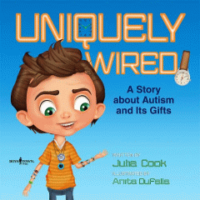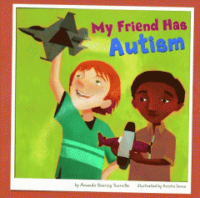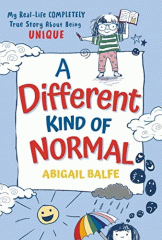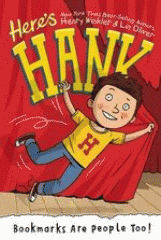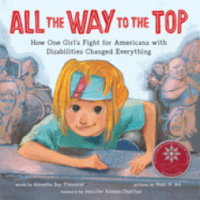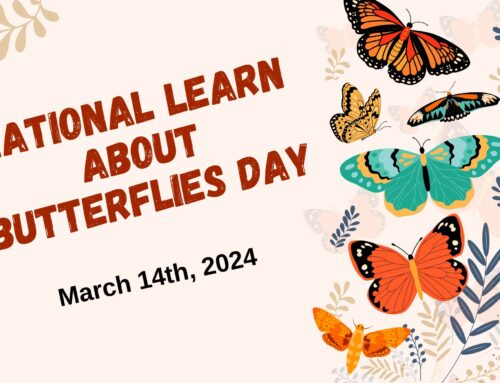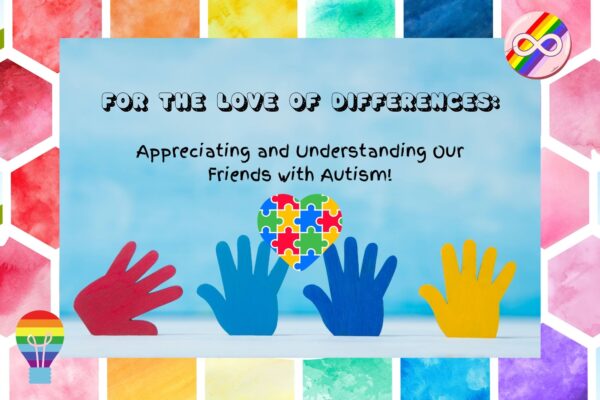
World Autism Month, starting with Autism Acceptance Day on April 2nd is a day to center and uplift the voices and stories of people with autism and celebrate the differences and special abilities our friends with autism have and offer to the world. Autism spectrum disorder (ASD) is a developmental disorder that affects the way that people with autism interact and experience the world. Some people may think ‘disorder’ or ‘disability’ are bad words, but they aren’t at all! Disorder is the medical term that doctors use to diagnose, and disability is the legal term used federally, in schools, etc. These words can be used interchangeably. They can mean someone needs a little more of something or a little less of something to live comfortably, and that’s okay! They can also mean that the world around us hasn’t made it easy to live in unless you’re a certain, specific way…and when you’re not that way, that may be difficult, which can be disabling. Whether someone prefers to use ‘disability’ or ‘disorder,’ they both mean that the person has different and special abilities! The biggest thing to remember is this: the person is NEVER a problem!
Autism affects people in many different ways, and there is no one way to have autism. It is important to appreciate and accept all of the ways that we are unique. Autism is a spectrum, and learning about our friends with autism is great for us to know and understand them better and to advocate for them, too! For World Autism Month, let’s talk about some ways we can show our acceptance and appreciation for our autistic friends!
One super huge and important thing to note is how people identify themselves in regard to their disorder. We all prefer to be called or referred to in a certain way. Some autistic people prefer the identity-first language, which is exactly that – saying “autistic person.” Some people with autism prefer the person-first language, which is saying “person with autism” instead of “autistic person.” Neither is wrong – it’s all about someone’s preference. If the person has autism and you’re curious, you can respectfully ask which is more comfortable for them.
The spectrum of autism houses many different characteristics some you may have or have not seen and experienced before. Everyone has strengths and challenges, and our friends with autism are no different! For example, some autistic people may be really good at knowing and remembering lots of facts about topics they’re interested in, or they can be super talented at certain hobbies, just like you! Some may be very observant and notice details that others may not, while others may find it hard to pay attention. Some people with autism may not use speaking to communicate, which is called non-verbal, and instead, they may use sign language or digital devices to help them. Some may shake their hands, swing their bodies, or make sounds when they are happy, sad, frustrated, or just overstimulated. This is called “stimming,” and it helps them to self-soothe their sensory system when everything is just a bit overwhelming, when they’re excited, or when they’re just feeling their feelings. Some autistic people may have problems communicating their needs and feelings and may act out their feelings instead, which can sometimes look like shouting, crying, kicking, or not talking to anyone, or avoiding conversations. It’s good to know that these kinds of behaviors may occur so that you can understand that it’s nobody’s fault that they are displaying their feelings in this way, and hopefully, you can understand why they are acting this way and show them love, care, and understanding when they are ready to receive it!
There are so many more characteristics and qualities that people with autism have, and although April is World Autism Month, it is essential to uplift, accept, and appreciate our friends with Autism every day! Listen to their needs, their stories, and their experiences. How they feel and how they experience life is important, and this is one way to make sure they are seen and heard.
Books
If you would like to know more about autism, neurodivergence, or developmental differences, here are some interesting books that can offer more information (and have super cool pictures, too!):
Uniquely Wired by Julia Cook
“Zak knows he’s not quite like his siblings and classmates. Bright lights and big crowds send him into freak-out mode. Hugs make him uncomfortable, too. His atypical behaviors, from flapping his arms to spinning his body, seem so out of place. But for Zak, that’s just how he copes. Despite some peculiar behaviors, Zak’s desires and disappointments are as ordinary as any child’s. He loves watches; he hates being excluded. As Zak embraces life the only way he knows how, he teaches those around him important lessons about fairness, patience, curiosity and independence.”
–Page 4 of cover
My Friend Has Autism by Amanda Doering
A young boy explains some of the challenges and rewards of having a friend who has autism.
“Hi! My name is Abigail, and I’m autistic. But I didn’t know I was autistic until I was (kind of) an adult. This is my true story of growing up in the confusing “normal” world, all the while missing some Very Important Information about myself. There’ll be scary moments involving toilets and crowded trains, heartwarming tales of cats and pianos, and funny memories including my dad and a mysterious tub of ice cream. Along the way, you’ll also find some Very Crucial Information about autism. Important, funny, and completely unique, this book is for anyone who has ever felt different.”
— Provided by publisher
Bookmarks are People Too! by Henry Winkler
“Hi! My name is Abigail, and I’m autistic. But I didn’t know I was autistic until I was (kind of) an adult. This is my true story of growing up in the confusing “normal” world, all the while missing some Very Important Information about myself. There’ll be scary moments involving toilets and crowded trains, heartwarming tales of cats and pianos, and funny memories including my dad and a mysterious tub of ice cream. Along the way, you’ll also find some Very Crucial Information about autism. Important, funny, and completely unique, this book is for anyone who has ever felt different.”
— Provided by publisher
All The Way To The Top: How One Girl’s Fight For Americans With Disabilities Changed Everything by Annette Bay Pimentel
“Diagnosed with cerebral palsy at birth, Jennifer Keelan grew up battling–and overcoming–the limitations others set for her. From a lack of cutaway curbs and bus lifts to being denied enrollment at her neighborhood school, Jennifer was continually blocked from living the life she wanted. But after discovering the world of disability rights activism, she knew she had to use her voice to change things. When Jennifer was just eight years old, she participated in the Capitol Crawl. The deeply affecting image of Jennifer crawling up the steps of Capitol Hill went viral and helped pressure Congress into passing the Americans with Disabilities Act. A powerfully illustrated biography of Jennifer’s life and a celebration of youth activism, All the Way to the Top will teach all children that they have the power to make a difference.”
— Provided by publisher.

